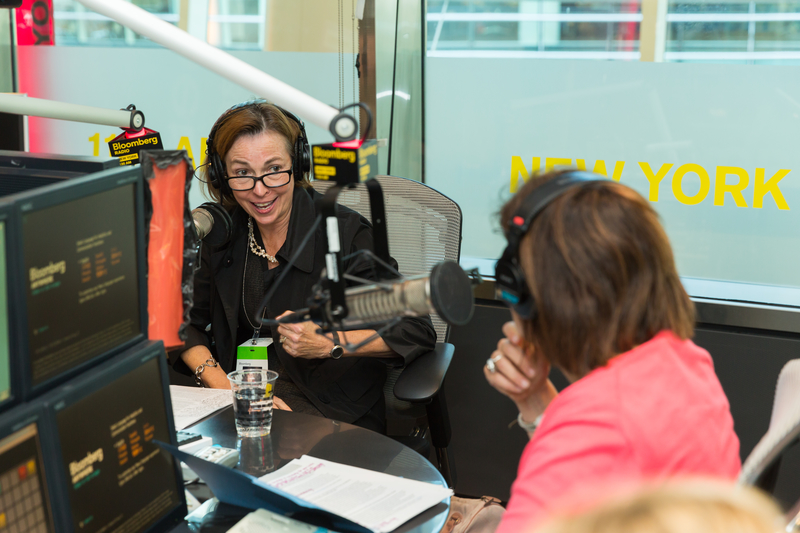
The pressure is on for colleges and universities to provide a return on investment to their graduates. After four years of studying, completing internships and paying tuition, students expect to leave their alma matter with a job offer in hand, ready to take on the ever-changing, global economy.
According to a research project from UCLA’s Higher Education Research Institute, since 2010, 86% of incoming freshmen have said that getting a better job represents a major factor in their decision to go to college. That percentage is up from previous years; between 2000 and 2009, only 73% of incoming freshmen said the same.
A major factor in this equation is a school’s career services department, and its ability to serve as a bridge to the marketplace, recruiters and alumni.
In a recent survey by the Gallup-Purdue Index of 11,000 college graduates, those who said their career departments were “very helpful” are almost 6 times as likely to say their university prepared them for life after college. Yet the same survey found that only 52% of graduates report visiting their career services office during their undergraduate education.
So what can colleges and universities do to offer their students an innovative career services experience?
Bentley President Gloria Larson joined Bloomberg Radio’s Carol Massar, along with guest experts, to discuss what colleges and universities need to be doing to ensure students are getting quality experiences that make them feel prepared for life after graduation, as well as why students should take a closer look at what prospective colleges offers for career development.
Colleges must make career services an institutional priority
Whether you call it career services, career development or career education, schools must constantly innovate the programs and services they are offering to students. At some schools, career services departments are being elevated on campus to ensure they have a strong connection with every stakeholder. At Bentley University, we have made career services an institutional priority. In addition to serving as a connector to the corporate world, our associate vice president of Bentley University Career Services sits on our curriculum committee. Through this expanded role, she is able to confirm our academic offerings are reflective of the skills that employers are demanding. We have even added new majors based on industry demand such as the Professional Sales major.
- Gloria Larson, president, Bentley University
Students need to consider career opportunities before choosing a school
In my opinion, most parents and students have it backwards when it comes time to deciding what college or university to attend. Many students decide on loans and financial aid up front… then they pick a major a couple years later… and THEN they think about career services. This process should be the complete opposite. Students need to consider what career preparation opportunities and services their top schools offer before writing a check. What kind of career… which leads to what kind of major… which leads to how much money students should smartly borrow (or not), should be the thought process when it comes time to deciding where to attend school. While students don’t necessarily need to know exactly what they want to do when they are 18-years-old, they should take the time to consider how their choice might impact their life 10, or 20 years down the road.
- Brandon Busteed, executive director of education & workforce development, Gallup
Good career services starts with understanding the customer
The Gallup report shows there is still work to be done to ensure students are having quality experiences with career services. Of the 52 % who visited their career services departments, a mere 16 percent say they found it very helpful. As a leader in college career services, this is troubling and should be a red flag for our industry. We must look to companies like Zappos who make exceptional customer service a priority and deliver an experience that is meaningful for students. This starts with understanding our customer. While career services staff members are relationship builders for various constituencies—including employers and faculty—it’s ultimately about students: millennials and Gen-Zers who value experiences, but are distracted by social media, internships, athletics, final exams and forging their own path. It’s the job of a career services team to build the career exploration experience around them; to show them that the process works, and to do it in a way that fits into their schedules and speaks to them.
- Susan Brennan, associate vice president, Bentley University Career Services
Colleges must facilitate innovative experiential learning
At Davidson, in reimagining the liberal arts, we’re building on our college’s long-standing tradition of innovation. Our career development model encourages every student to embrace the opportunities for experiential learning and immersive professional exposure. If students seek to be a competitive candidate for top-tier firms after graduation, they need to find ways to apply their skills in real-world applications. It is up to us as college career services departments to facilitate those experiences for their students. From lab work in a local brewery for science majors, to corporate social responsibility at a corporate giant, to part-time research and writing fellowships, we’ve built opportunities for students to gain paid, impactful experiential professional exposure during the semester here at Davidson.
- Jeanne-Marie Ryann, Executive Director of Career Development, Davidson College
Learn more about Bentley's partnership with Bloomberg Radio.

